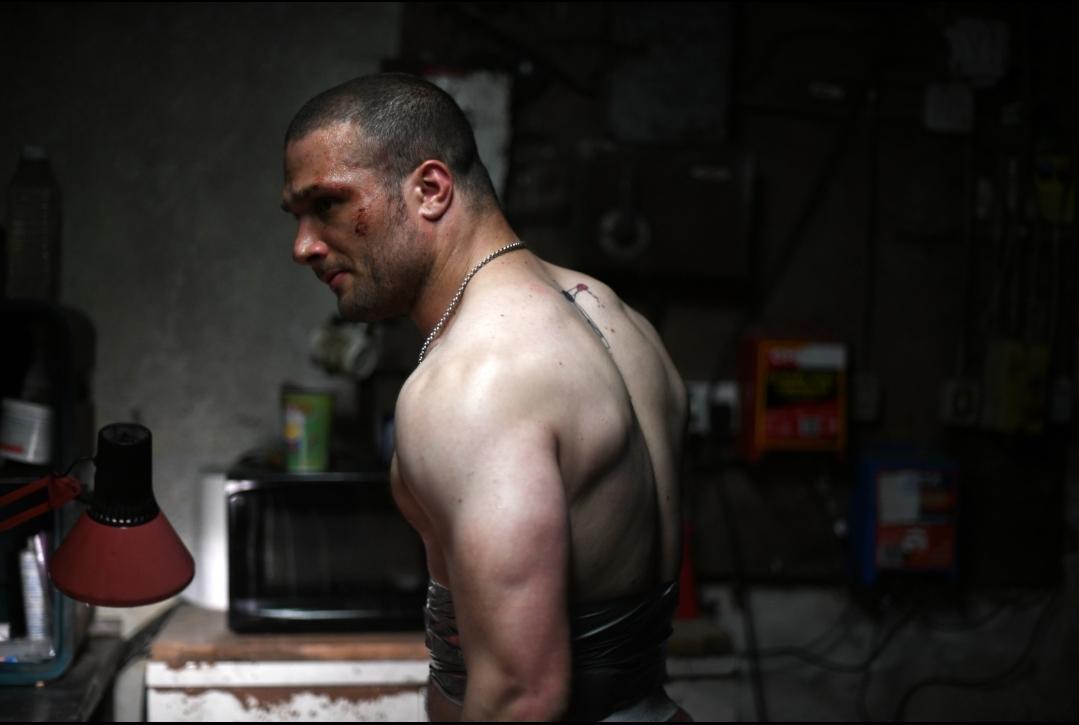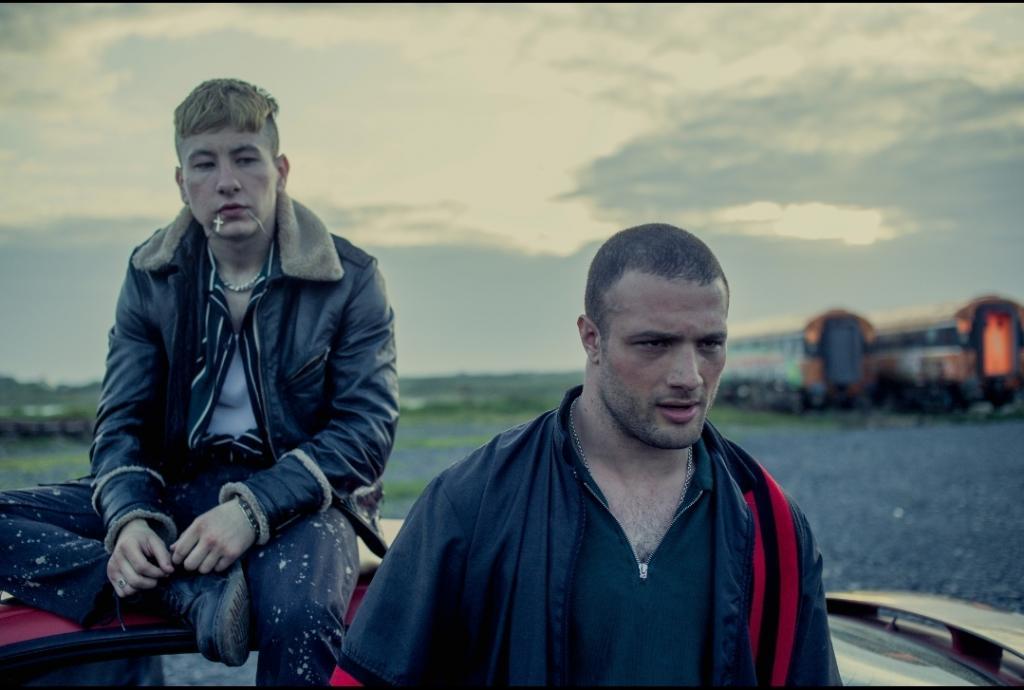
A pick from Colin Barrett’s acclaimed 2013 short story collection, “Young Skins”, serves as the basis for filmmaker Nick Rowland’s feature directing debut, which underwent its film festival circulation through last year under the story’s title, Calm With Horses. The film was four years in the making with Rowland who partners with screenwriter and longtime film cohort Joe Murtagh, and as such, marks their latest North American outing through Saban Films’s acquisition this month for the film’s new title, The Shadow Of Violence, a more marketable and commercial branding that definitely sticks with respect to the story, though that isn’t to say horses aren’t involved.
Indeed, they’re intergral to the development and progression of one Douglas “Arm” Armstrong (Cosmo Jarvis), once a young boxer whose prospects soon took a violent, diminishing turn prior to taking on a different title: enforcer for the Devers crime family. Being a father, however, takes on an entirely different identity though, as Arm struggles to balance his obligations to Ursula (Niamh Algar) and their special-needs son, Jack, all while serving as the right-hand to wheeling-dealing best friend Dympna (Barry Keoghan), the eldest of the Devers family – both whose work is overseen by Dympna’s uncle, Hector (David Wilmot), and the distant control from the gang’s vicious leader, Paudi (Ned Dennehy).
Arm’s true test of so-called loyalty to the family comes following an incident in which a man is accused of violating Hector’s 13-year old daughter, and is subsequently dealt with in the form of a severe beating by Arm. As the days pass, much of Arm’s hopes are focused on maintaining his relationship and status as a father in Jack’s life, while coping with Ursula’s new relationship with a horse trainer, as well as a new schooling and work prospects far and away from their rural seaside town. Suddenly, Hector learns of Arm and Dymplar’s recent retribution, but is convinced that the only solution to help cover the family’s criminals tracks is a “no loose ends” policy, and that’s when Arm truly begins his introspective transformation, questioning whether or not this is a test of loyalty, or something much more demeaning.
The Shadow Of Violence is not unlike most narrative dramas, centered on a tormented protagonist whose life has been led primarily burning the candle on both ends. Jarvis’s portrayal of Arm hands the audience an anti-hero with his own mental impediments, whose life choices now leave him at a precipice where he’s in control of something for the first time in a long while, and it’s not until it’s too late that he realizes the trouble his own refraction causes, and not just both him and Dymplar. Contrary to what might have been a foregone conclusion here in the aftermath of it all for gangster stories of its kind, The Shadow Of Violence leaves off with a much more poetic and meditative finish that aptly serves its ending.
Keoghan delivers a supporting role in Dymplar that illustrates the much darker side of Arm’s conscience when he can’t typically think for himself. He keeps Arm on the straight-and-narrow when needed, and when it’s time to kick back and cut loose, a few extra lines or so of cocaine and some peer pressure will do the trick. Algar, an amateur boxer herself in real life, doesn’t throw down any in The Shadow Of Violence, but carries the role well opposite Jarvis in their handling as a former couple in their stoic efforts to maintain some air of normalcy for the sake of Jack, played by Kiljan Tyr Moroney.
Dennehy, whose out-of-this-world villainy sets the pace in Panos Cosmatos’s Mandy, is just as menacing and dangerous as Paudi, the reigning boss of the Devers family. He hardly needs to be pre-empted with a warning sign for all his subordinates, but that doesn’t mean he won’t set out to leave an impression, which is exactly what he does early in the film when he’s introduced in a scene with Arm and Jack. There’s a subtlety here implied to Arm’s awareness, and it almost makes you wish the film ended differently.
Nonetheless, each character is suitably written to fit in the world Murtagh creates, per Rowland’s vision, crafting a brooding tale of sacrifice and absolution. That Jarvis is the only non-Irish member of the film’s cast line-up is an absolute plus given the performance he puts on for Rowland on camera, and indicative of his caliber and ferocity as an an immersive actor and a true talent, committed to the journey of his character every step of the way. The Shadow Of Violence exudes this fact tenfold, casting light on a fine gangster youth drama that weighs in on the cyclical nature of violence, and encapsulates with a resounding, poetic finish.

